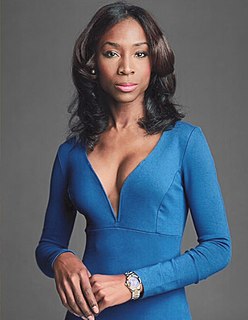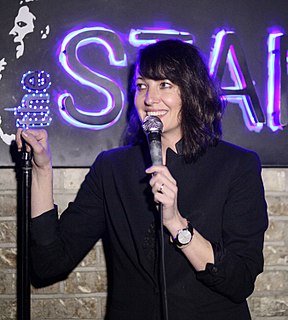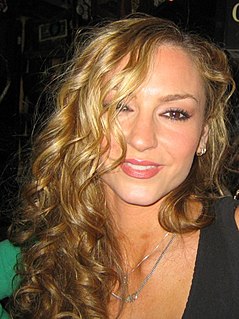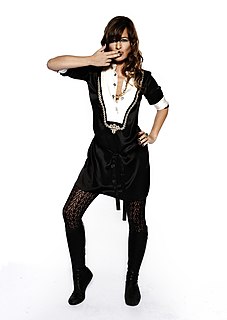A Quote by Angelica Ross
'Pose' makes the case that it's important to have some sort of family structure, even if you have to create one. You know, if I go back home for a while, my mom will be like, 'Oh, I didn't really throw you out the house.' And I know so many other LGBT parents who don't really own or talk about the rejection, and it prevents healing.
Related Quotes
I still don't really know what my style is. I like a lot of different kinds of comedy, I like watching it and I like being inventive and original. That's the problem with doing a longer set - you can't do every joke that you have because some stuff contradicts other stuff. Even when you know that the audience knows that you're joking and it's not true, you still can't do a joke about your family dying and then later talk about your Mom. I mean you want to keep some kind of cohesive order going.
Oh, no, I think I'd die on my own. I'd be so lonely. Even at home, I'm lonely. I sit in my room and sometimes cry. It is so hard to make friends, and there are some things you can't talk to your parents or family about. I sometimes walk around the neighborhood at night, just hoping to find someone to talk to. But I just end up coming home.
If you want to do good research, it's important not to know too much. This almost sounds contradictory but really if you know too much and you get an idea, you will sort of talk yourself out of trying it because you figure it won't work. But if you know just the right amount and you get enthusiastic about your project, you go ahead, you do it and if you're lucky things'll work out.
I don't find the same things funny that many other people seem to find funny. I don't really respond to sex jokes and things like that, and some of my friends look at me and go, "Come on, Nic, that was my best joke. Why aren't you laughing?" I go, "I really don't know why I'm not laughing. I'm sort of out of sync with it." So I'd have to find something that was really about weird human behavior for me to laugh.
In my experience, writing a novel tends to create its own structure, its own demands, its own language, its own ending. So for much of the period in which I'm writing, I'm waiting to understand what's going to happen next, and how and where it's going to happen. In some cases, fairly early in the process, I do know how a book will end. But most of the time, not at all, and in this particular case, many questions are still unanswered, even though I've been working for months.
Well, I know from some of my own experience, and many of my friends' experiences, when going through that sort of program. The whole addiction game really forces you to focus on what brings you there and accept the only way out. So once you really put this focus on getting better and figuring out what your flaws are, that's what brings you back. I think she could've been more reckless and shown up earlier, but I wasn't really available to come back.
I don't really look at stats or whatever. You see them on the big screen. But other than that, I don't pay too much attention to it. I did know about my dad's home run total. Other than that, I don't like to know. It's pointless. Whether you know or don't know, you don't want to think about it. You just want to go out and play the game.
I love my jeans and my sweats-I’m really just a tomboy at heart. So it’s really hard for me to be like Kim Kardashian and be makeup-and hair-ready every time I go out of my house. I’m not a believer in that, you know? On the other hand, when you do wear those sweats, you’re like, Oh God, I should step it up a notch.



































